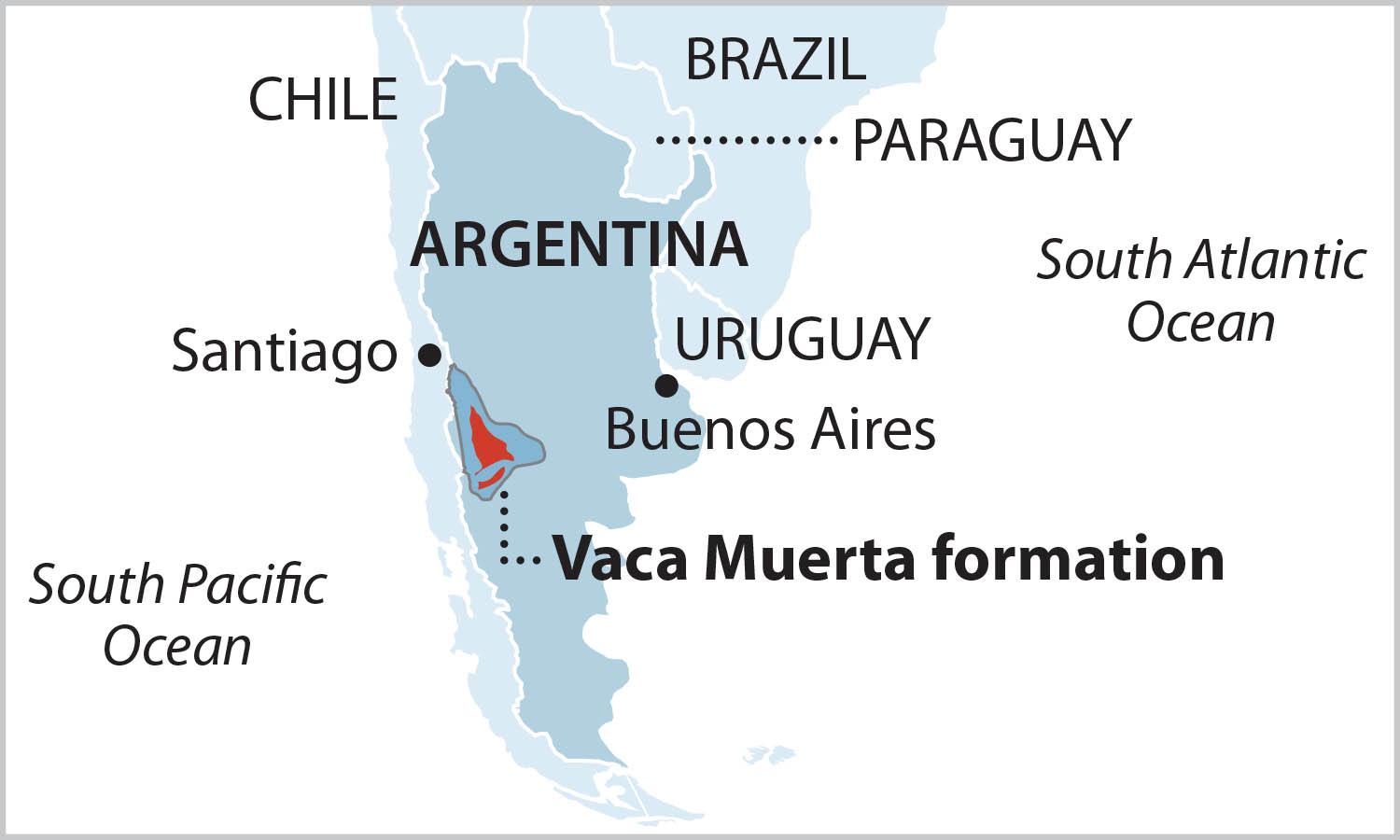IEEFA brief: Political and economic crisis throws Argentina’s energy market into disarray

NEW YORK, October 7, 2019 (IEEFA) — Argentina’s energy market is in disarray, triggered by the political and economic crises that have gripped the country since August 2019 when President Mauricio Macri lost his primary bid for reelection, according to a new report by the Institute for Energy Economics and Financial Analysis (IEEFA). Producers are slamming the brakes on their investments in Vaca Muerta, located in Argentina’s northern Patagonia, until after the October 27 presidential elections. Oil and gas companies blame shifting energy policies, currency controls, price freezes and inadequate infrastructure.
The report, Political and Economic Crisis Throws Argentina’s Energy Market into Disarray, finds:
- Only two bids to export natural gas to Chile, Brazil, or Uruguay were submitted since August, representing only 2 million cubic meters, just 20 percent of the government’s plan to export 10 million cubic meters per day,
- ExxonMobil, Total, and Wintershall did not submit bids to export natural gas.
- Production growth is way below plan, not the planned 13% per year.
- Nearly 100 completed unconventional wells in Vaca Muerta have not been put into production this year. The local government’s goal of having 300 new wells in Vaca Muerta by the end of the year is unlikely to be realized.
- Leaders of foreign oil and gas companies operating in Vaca Muerta are complaining publicly.
“A combination of a weak international market and inconsistent government policies have undermined the Argentine oil and gas market,” said Kathy Hipple, IEEFA financial analyst and co-author of the brief. “Companies say they have not put wells into production because of a glut in natural gas, a change in government subsidy policies, and inadequate infrastructure such as pipelines that would transport gas for export to Chile or to other countries through ports in Buenos Aires. Also, a government-imposed freeze on the price of oil has been cited for the delay in putting completed oil wells into production.”
“The open question is whether the newly elected president will seize the opportunity to rethink the country’s faltering energy plan, which is overly dependent on unconventional oil and gas reserves in Vaca Muerta,” said Tom Sanzillo, co-author and IEEFA’s director of finance . A newly constructed plan could put Argentina’s house in order with a more strategically prudent use of oil and gas assets that bring down domestic prices and improve chances for economic growth. The Vaca Muerta energy resource alone cannot revive the Argentina economy. But Vaca Muerta is an important asset in a balanced energy plan that includes abundant solar and wind resources.”
Full report: Political and Economic Crisis Throws Argentina’s Energy Market into Disarray
Author Contact
Kathy Hipple ([email protected])
Tom Sanzillo ([email protected])
Media Contact
Sandy Buchanan, [email protected], 216-688-3433
About IEEFA
The Institute for Energy Economics and Financial Analysis (IEEFA) conducts global research and analyses on financial and economic issues related to energy and the environment. The Institute’s mission is to accelerate the transition to a diverse, sustainable and profitable energy economy.













